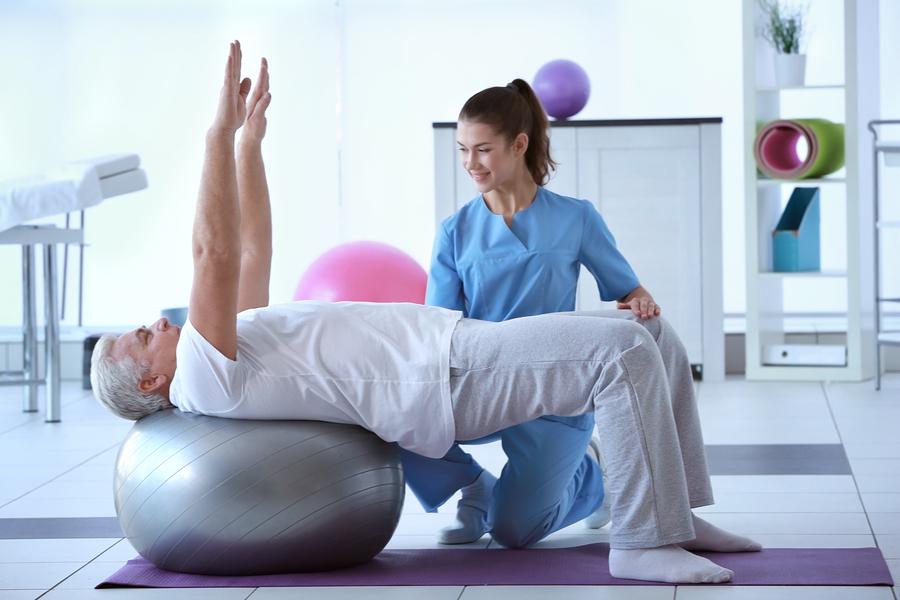Osteoporosis is something that we have discussed previously on our blog and today we would like to take the time to touch on it again – this time in regards to prevention!
When osteoporosis strikes the bones begin to lose their strength and their density. Amongst other things, this means that they are at a greater risk of injury, such as breaks or fractures. Asides from the increased risk of injury, there are no other symptoms of this condition, meaning it can be difficult to know that you have it until you suffer a related injury.
This condition is more prevalent in women, but is something that men can also experience.
Oestrogen levels are very much connected to the health of the bones. This hormone influences bone metabolism and contributes to the development and maintenance of healthy bones. As oestrogen levels fall, which happens naturally around the age of menopause, significant bone loss can occur. This is likely to be the most serious in the first year of menopause.
Let’s take a look at the different ways in which you can help to protect against osteoporosis.
Early Years
Your bones will be at their peak density level when you are in your mid-twenties. Eating well and exercising an adequate amount before this time is a great way to ensure your bones are in good health when you reach this age. Doing so can help to lower the risk of osteoporosis later in life.
Nutrition
The food that you choose to put into your body is key to helping preserve the health of your bones and offsetting the risk of osteoporosis.
A diet rich in calcium is conducive to optimum bone health and a range of high calcium foods should be a regular feature in your diet. However, it is also important that you keep your vitamin D levels at an adequate level. This isn’t usually difficult to do but it is often advised that you take a vitamin D supplement during the winter months when sunlight is less available.
Exercise
Exercise is great for a wide range of reasons and is something that should feature in all of our lives. Exercising regularly from a young age is one of the best ways to ensure you reach optimum bone mass as an adult. However, your bones can still benefit from exercise as you continue to age. In fact, doing so can help to increase the presence of minerals in the bones and to reduce how rapidly bone density lowers after the menopause.
The average adult should aim to have at least two and a half hours of exercise each week. This doesn’t necessarily have to be in the gym, and even upping the amount of fast paced walking that you do can contribute to hitting this quota!
When boosting bone health is the aim of your exercise sessions, you should keep in mind that weight-bearing exercises and those that involve some level of resistance are going to be the most helpful. These types of exercise help to prevent osteoporosis and help to improve bone density.
If you have already been diagnosed with osteoporosis and would like to embark upon a new exercise regime then it is always advisable to consult a healthcare professional first. They will be able to guide you as to the most appropriate exercises that you can do with the least amount of risk to yourself.
Caffeine
Caffeine has been shown to inhibit how well the body can utilise the calcium that it receives from dietary sources. Drinking one or two coffees during your day is unlikely to cause any problems, but if you regularly consume more caffeine than this then you may be harming the health of your bones.
Alcohol
Drinking a sensible amount of alcohol shouldn’t be of detriment to your bones. However, if you regularly exceed the recommended amount then this can actually lead to an accelerated rate of bone loss.
Living with Osteoporosis
Working to prevent osteoporosis is a great way to help protect your health in a long term way. However, if you do develop this condition then there are still ways that you can work to protect your physical health. Continuing to eat well, exercise regularly and take care of yourself will be of great assistance when it comes to coping with osteoporosis.
If you do break a bone then it is likely that the recovery time will be between six and eight weeks. A fracture may heal within a quicker time frame but you should always be careful not to over-exert yourself physically during and following recovery. It may sometimes be the case that surgery is required to help a break or a fracture heal properly, and in this instance you will of course have a longer recovery time. Your quality of life and independence can obviously be quite largely affected when you are recovering from this kind of incident, so it is advisable that you protect yourself as much as is possible.
References
Related Posts
Cigarettes May Inhibit Inflammation Treatments
Axial spondyloarthritis, also known as AxSpa, is a chronic…









